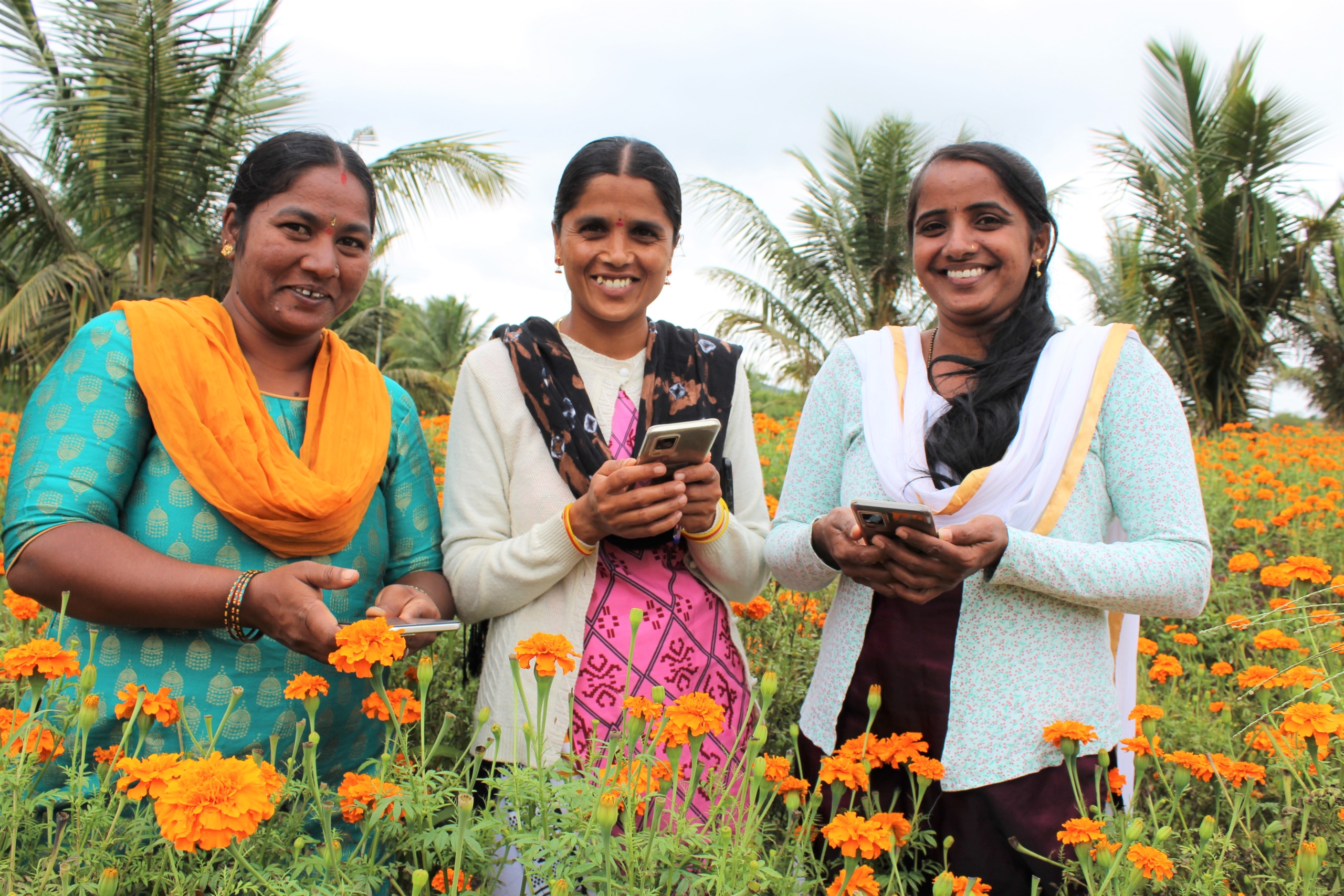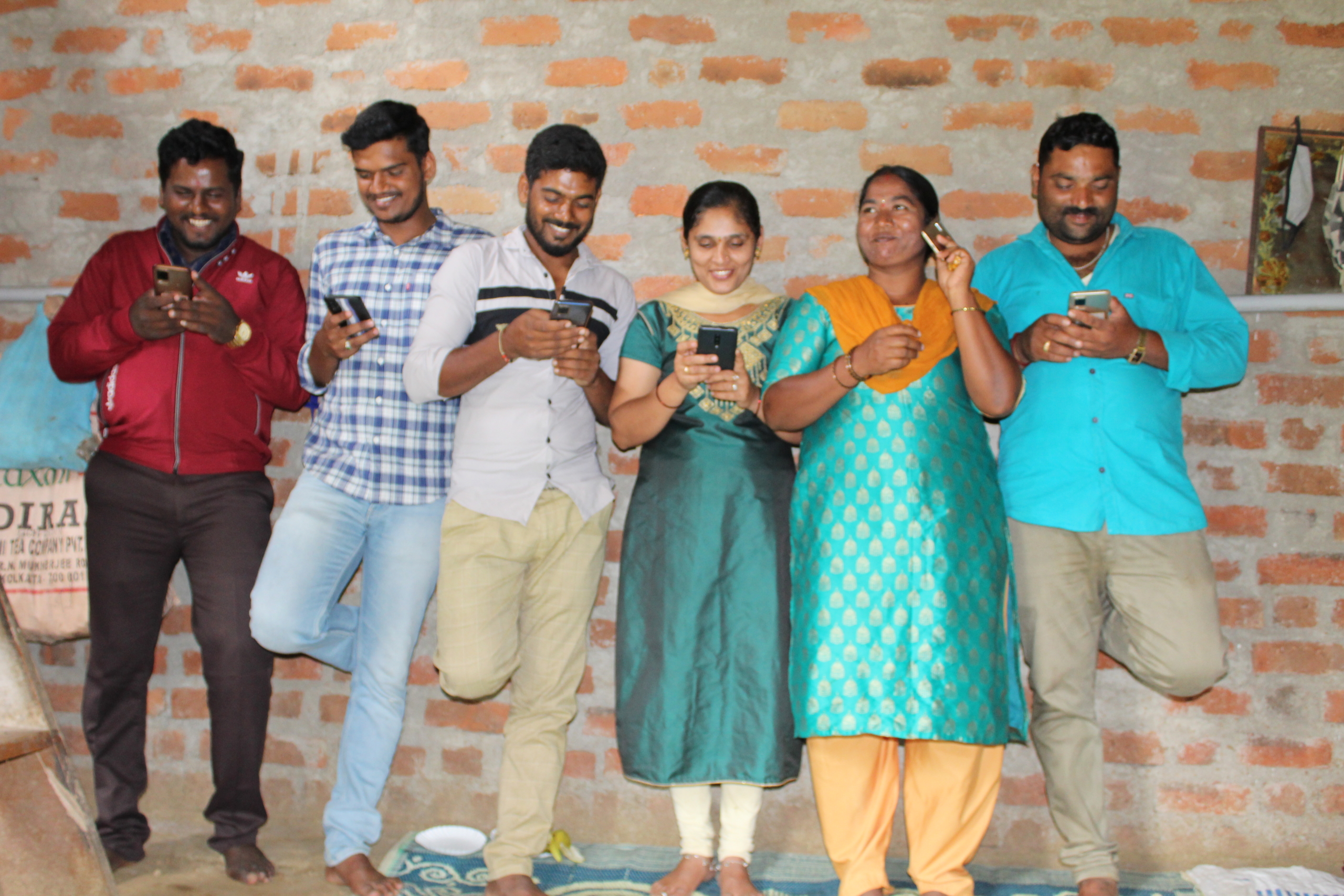Our country has a chance to become the world’s digital talent hotspot. Then why are farmers feeling left out? With hundreds of agro-advisory Apps already in use, the digital skills of the traditional farmers are not advancing with the pace they could be. WHH India is bringing farmers and technology closer to each other by re-introducing millennials and Gen Z as the bridge.
Five hours away from Bangalore- the Silicon Valley of India- in Hassan district of Karnataka, these youth from the rural heartland feel empowered. And why not – they are part of India’s digital revolution!
Meet the rural youth who are on a mission with the farmers to bridge the big digital gap. They are enterprising, entrepreneurial and most importantly, driven by digital solutions to address food security in their region.
Last time when 30-year-old Chethan visited a farmer in Rangapura village of Karnataka’s Hassan district, he recalls the leaves of Chrysanthemum plant (a look alike of Marigold) turning yellow. The entire livelihood of the smallholder farmer went into the drain as he could not get the right diagnosis or sprayed too many medicines at a time. Likewise, he has seen a lot many farmers lose their income due to poor access to information or digital capacity.
“It hurts to see them in pain. We feel responsible as we belong to this farming community. Our parents are farmers, our ancestors were farmers, and we understand the challenges faced by a small-scale farmer. If we don’t address our problems, then who will?” says a motivated Chethan.
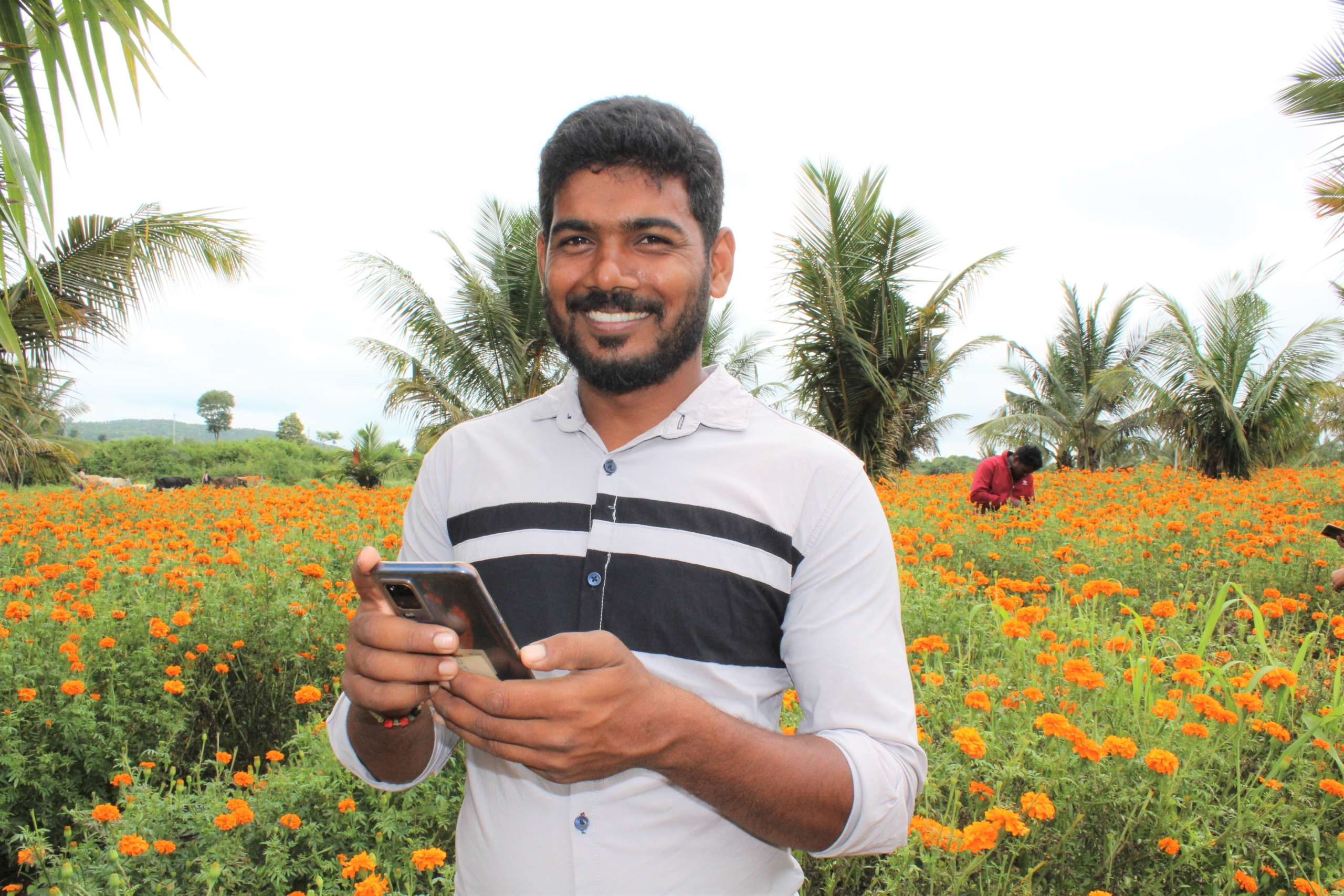
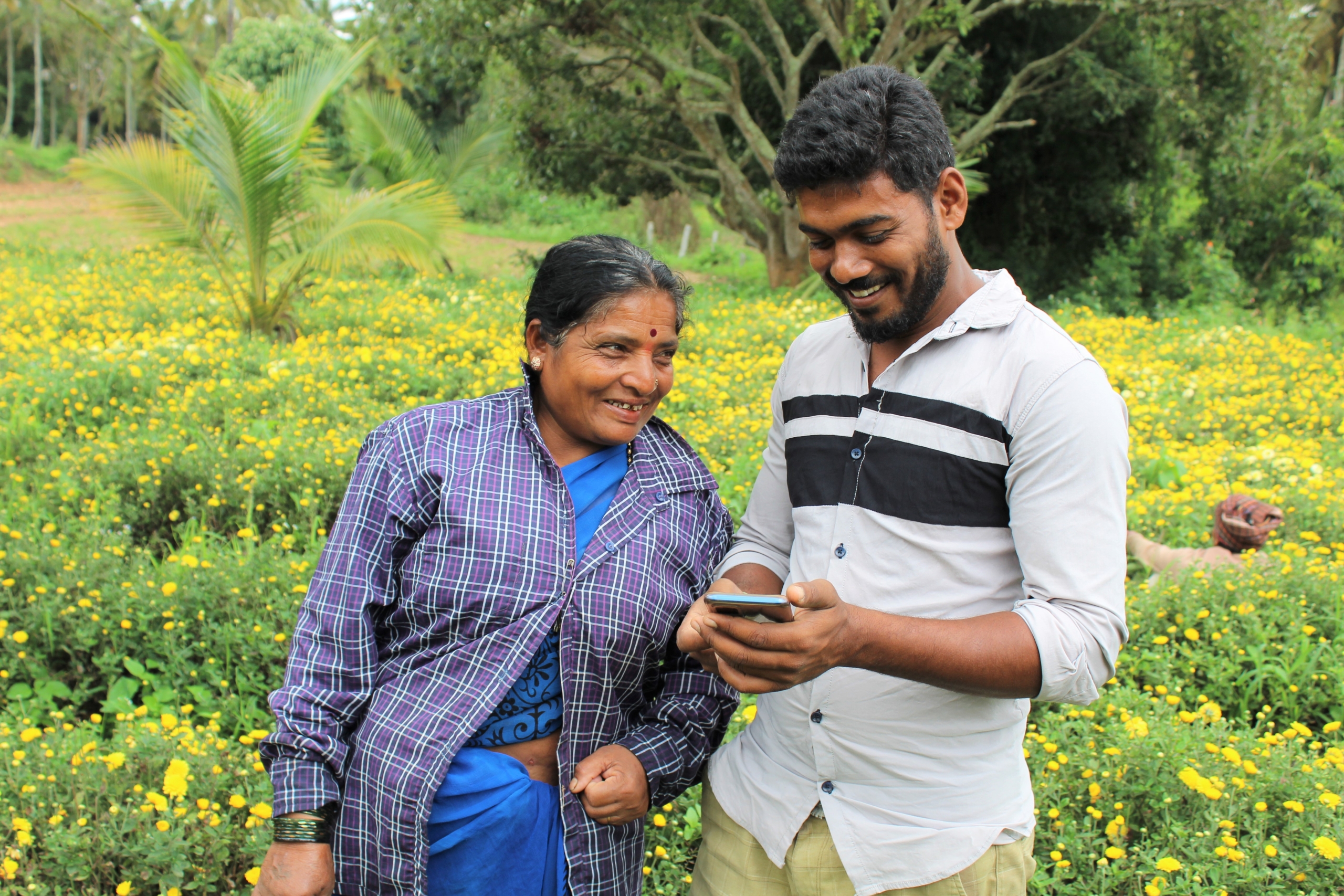
“There is a gap in adoption of technology which leads to poor productivity levels. Many practicing farmers are old, many have left farming. If the trend continues, we might face food shortage soon,” Chethan adds. This motivated Chethan to work for a bigger cause.
As part of Welthungerhilfe’s digital innovation project, about 100 rural youth are roped in Karnataka, as digital extensions or service providers for an agro-advisory App called ‘Sativus’ – developed by Tene-Ag. The App gives farmers a chance to evaluate crop health and implement timely solutions. What makes the platform stand apart is the role of youth as information bridge between farmer and technology. Every youth is identified from a particular rural village, hence the name ‘Rural Youth’, an official terminology used for the younger extension workers in the project.
In its innovation project, WHH has partnered with a technology partner Tene-Ag, MOTHER and ORDER – non-profit organizations – to implement an App-based advisory that is not a ‘one-way’ but a ‘two-way’ communication.
Tene-Ag have spent two-and-a-half years in designing the app with 27 developers. It wants to keep the problem analysis and solution framed in a simpler language as it’s used by rural youth who have a basic understanding of the English language.
How the App functions?

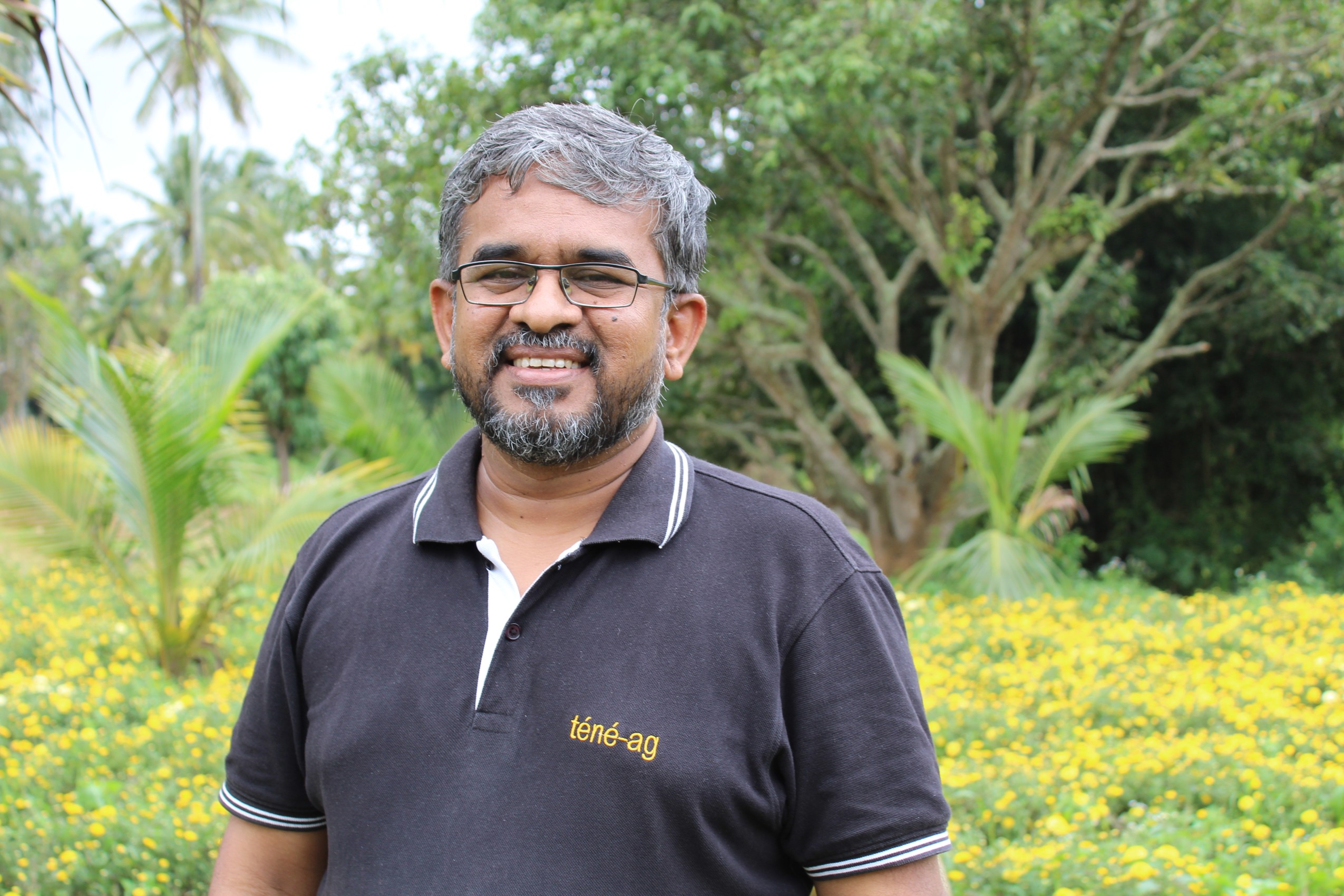
Y.B Srinivas, App’s Managing Director, explains why he intends to keep the architecture and language simple. “We have done an in-depth and thorough research for over two years now and have come up with this solution-oriented Sativus App. Whether it is a coconut tree or a tomato plant, the logic and words to identify a symptom is same for any crop. There are a set of words, and it is an interplay of those set of words that guides the person towards the problem. These Rural Youth play the role of translating the technical language in a simplified version to the farmer. They are indirectly helping farmers under the App and it’s functioning better.”
The App language is simple and universal, and easy to understand. Rural Youth are given extensive training into learning basic scientific terminologies. Words like pests, virus, bacteria have once again come alive for them. Every Rural Youth handles 20-25 famers from nearby villages.
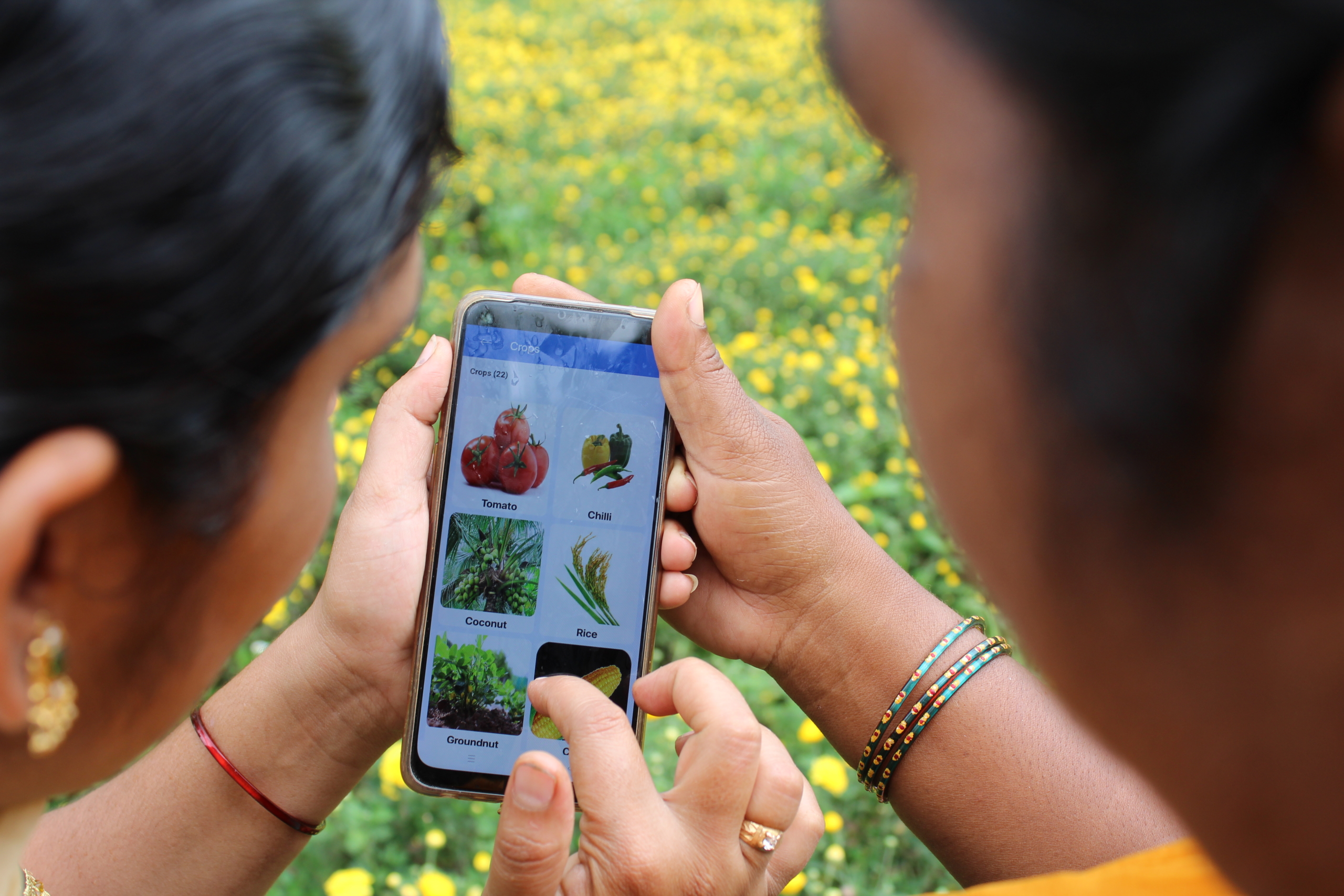
In over six months, the demand is growing within other farmers. WHH conducts monthly village awareness programmes and demonstrations for practicing farmers on organic manure and reducing dependency on chemicals for smaller problems, thereby avoiding the unnecessary expenditure.
It is a moment of pride for Chethan and his other Rural Youth friends when their intervention saves a small-scale farmland. “It is a unique feeling of satisfaction in all of us when the recommendations generated by the App and explained by us actually work in saving the farm and the farmer’s hard earned money. All they want is a bit of explanation of advisories with respect to their topography,” says Chethan.
The project, in its next phase, has also envisioned to build a business model for the youths to create employment through the App.
Twenty-six-year-old Rural Youth Pramodh expresses with a lot of confidence- “The project has given us a new identity. People now see us as change agents, as young agriculturists. Our role as service providers is empowering us and work for our people. We want to stay in our village and work for its development now.” Given that in these times of agrarian crisis when hardly any young person dreams of farming as a livelihood, this is indeed a sea change!
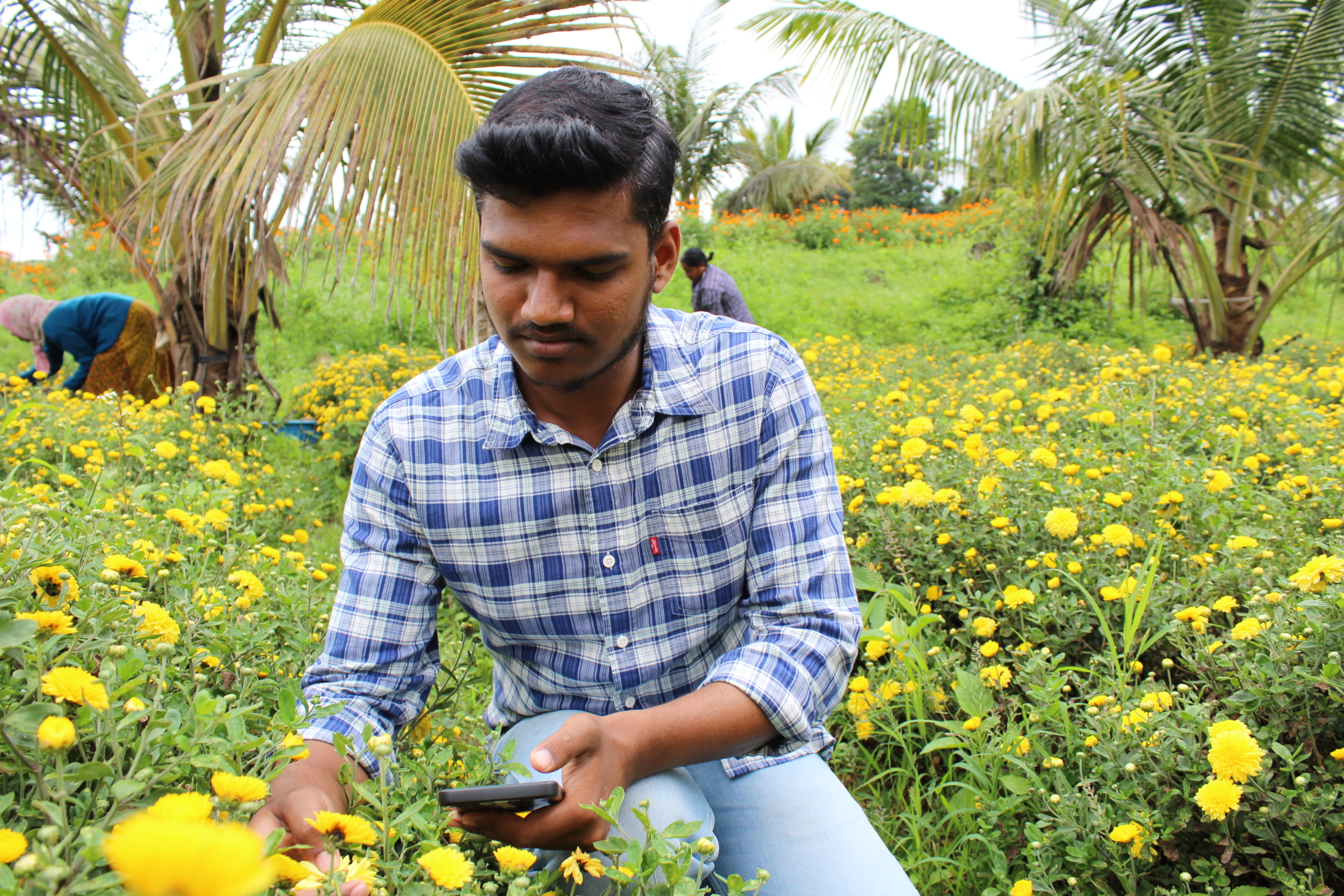
Passionate about changing the dynamics of their villages, these Rural Youths believe they are the ones who will carry information to the younger generation and build a base for an effective knowledge-based advisory system for ecological and economic sustainability.
